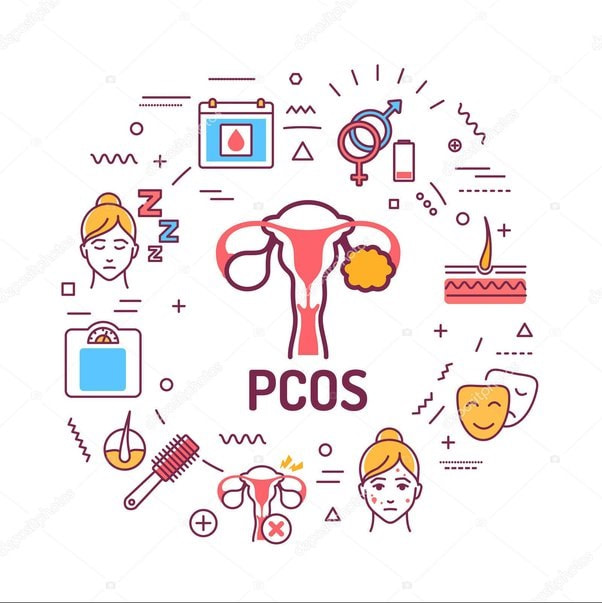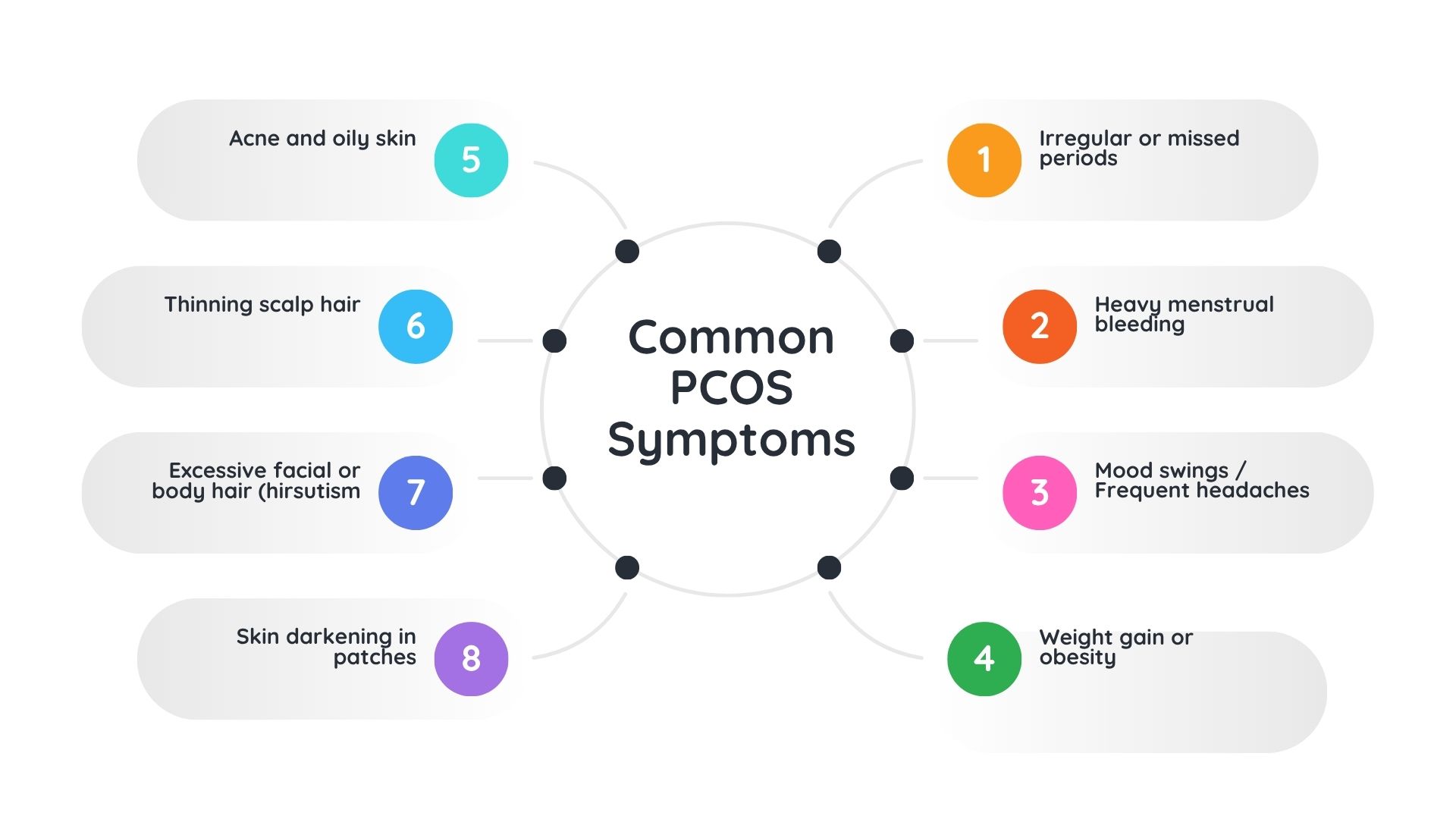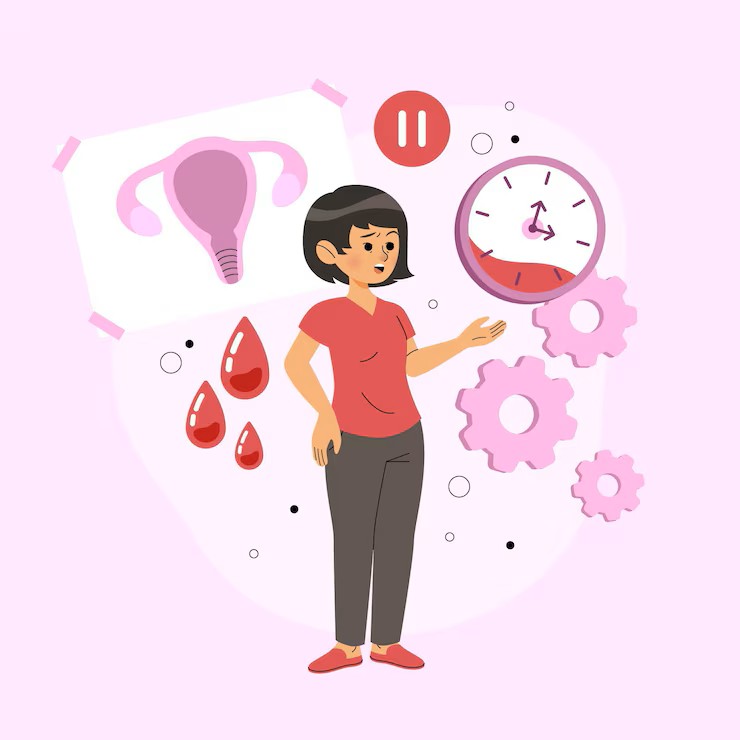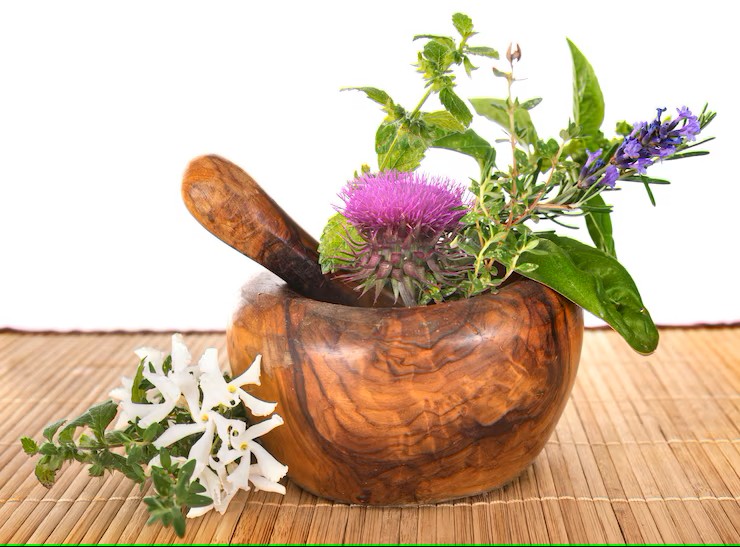What is PCOD/PCOS ???
Polycystic Ovarian Syndrome (PCOS), also known as PCOD, is a hormonal disorder that affects about 5–12% of women during their reproductive years. It’s often linked with obesity, irregular periods, and even fertility challenges. The causes? They could be genetic, rooted in lifestyle habits, or a mix of both.

While weight can trigger PCOS ,the condition itself can also make it harder to shed extra kilos. Emotionally and physically, PCOS can be a distressing journey for many women.
What Ayurveda Says About PCOS
In Ayurvedic medicine, PCOS is classified under Yoni Vyapat, a category that includes 20 different uterine and vaginal disorders. According to this ancient system, PCOS primarily stems from an imbalance in two doshas: Pitta (fire element) and Kapha (water element). When Pitta is aggravated, it contaminates the body’s tissues (dhatus), leading to a build up of toxins (ama). These toxins disrupt hormonal pathways, especially those governed by the pituitary gland, causing irregular ovulation and the formation of cysts in the ovaries.

Understanding the Root Cause
PCOS occurs when hormones disrupt the natural ovarian cycle. Instead of releasing an egg, the follicles stay in the ovary, turning into cysts. With each cycle, more cysts may form, hence the term “polycystic.” Poor diet, high stress levels, sedentary lifestyles, and long term use of hormonal birth control can all trigger or worsen the condition.

- Virechana (therapeutic purgation)
- Vasti (medicated colonic enema)
- Uttar Vasti (vaginal enema) These help detoxify and rejuvenate the reproductive organs.
Herbs That Help in PCOS Management:
- Triphala – Rich in Vitamin C, helps reduce inflammation
- Shatavari – Supports insulin control due to its natural phytoestrogens
- Shatapushpa – Promotes egg growth and healthy follicular development
- Guggul, Kanchanar, Trikatu, Dashamool – Aid detox and hormone balance
- Guduchi – Revitalizes tissues and improves insulin sensitivity
- Aloe Vera – Helps regularize menstrual cycles
- Varuna, Pippali, Punarnava, Chitraka, Shunthi – Support detox, metabolism, and hormonal health
PCOD Friendly Diet Tips:
- Eliminate sugary foods and artificial sweeteners
- Reduce salt intake, especially during your period
- Load up on fresh fruits and vegetables
- Choose whole grains (brown rice, oats, millets)
- Avoid saturated fats found in red meat, fried foods, and processed snacks

Lifestyle Habits for a Healthier You:
- Practice stress relief techniques like yoga, meditation, or deep breathing
- Drink 1.5–2 litre of water daily to stay hydrated and flush toxins

- Aim for 45 minutes of moderate physical activity each day
- Get enough sleep and maintain a consistent sleep schedule
- With consistent lifestyle changes, a balanced diet, and Ayurvedic guidance, managing PCOS becomes not only possible but empowering. You don’t have to live in worry, healing is in your hands.
Talk to expert.





